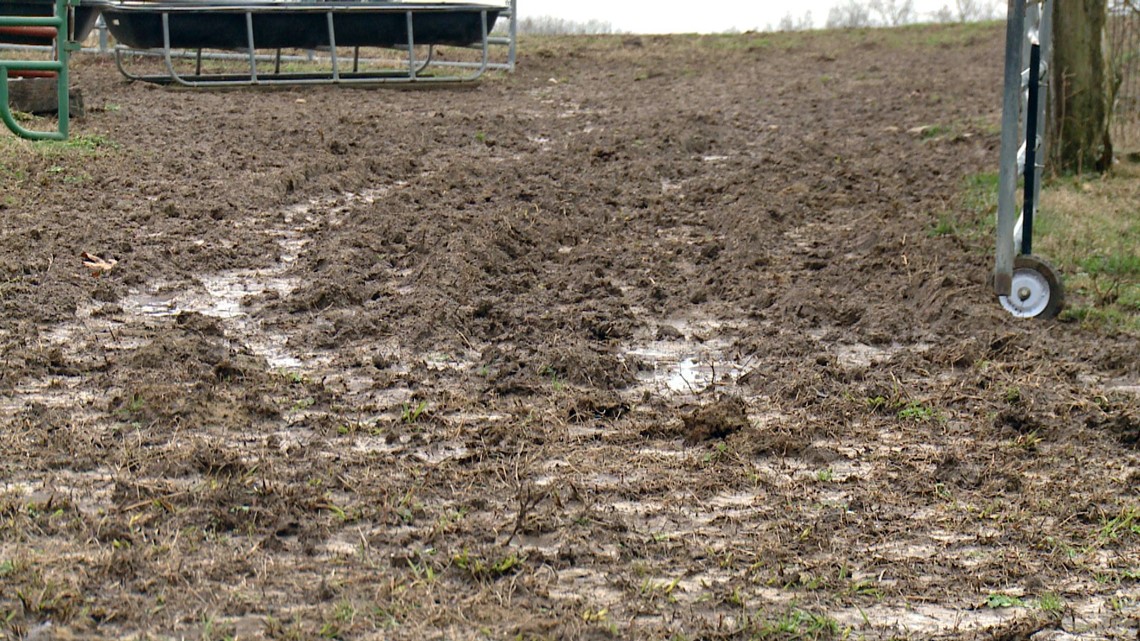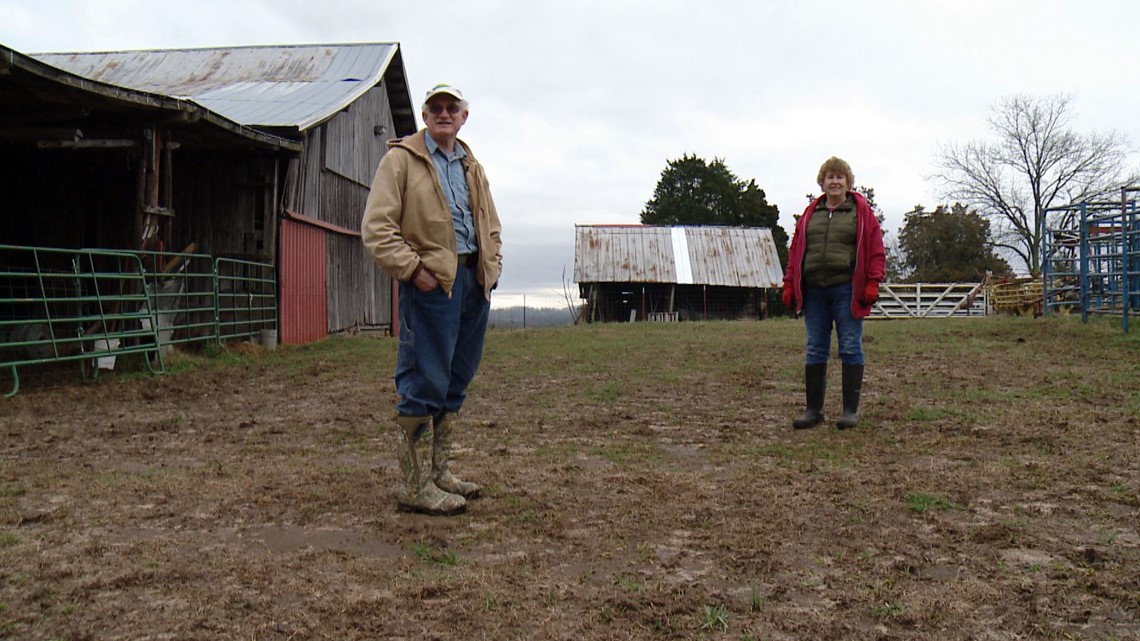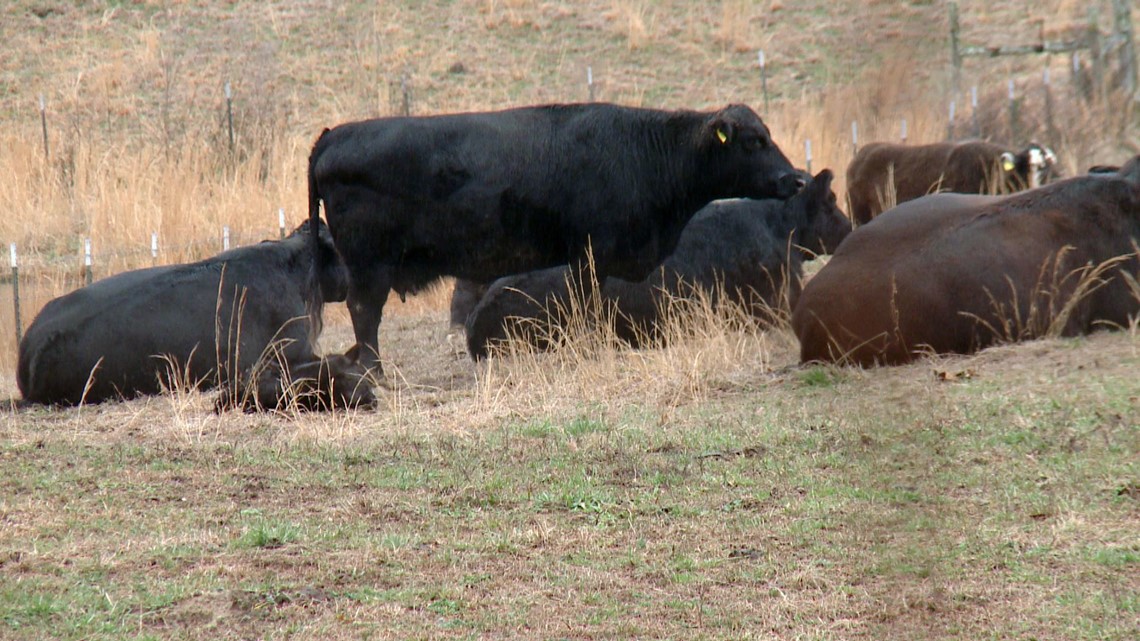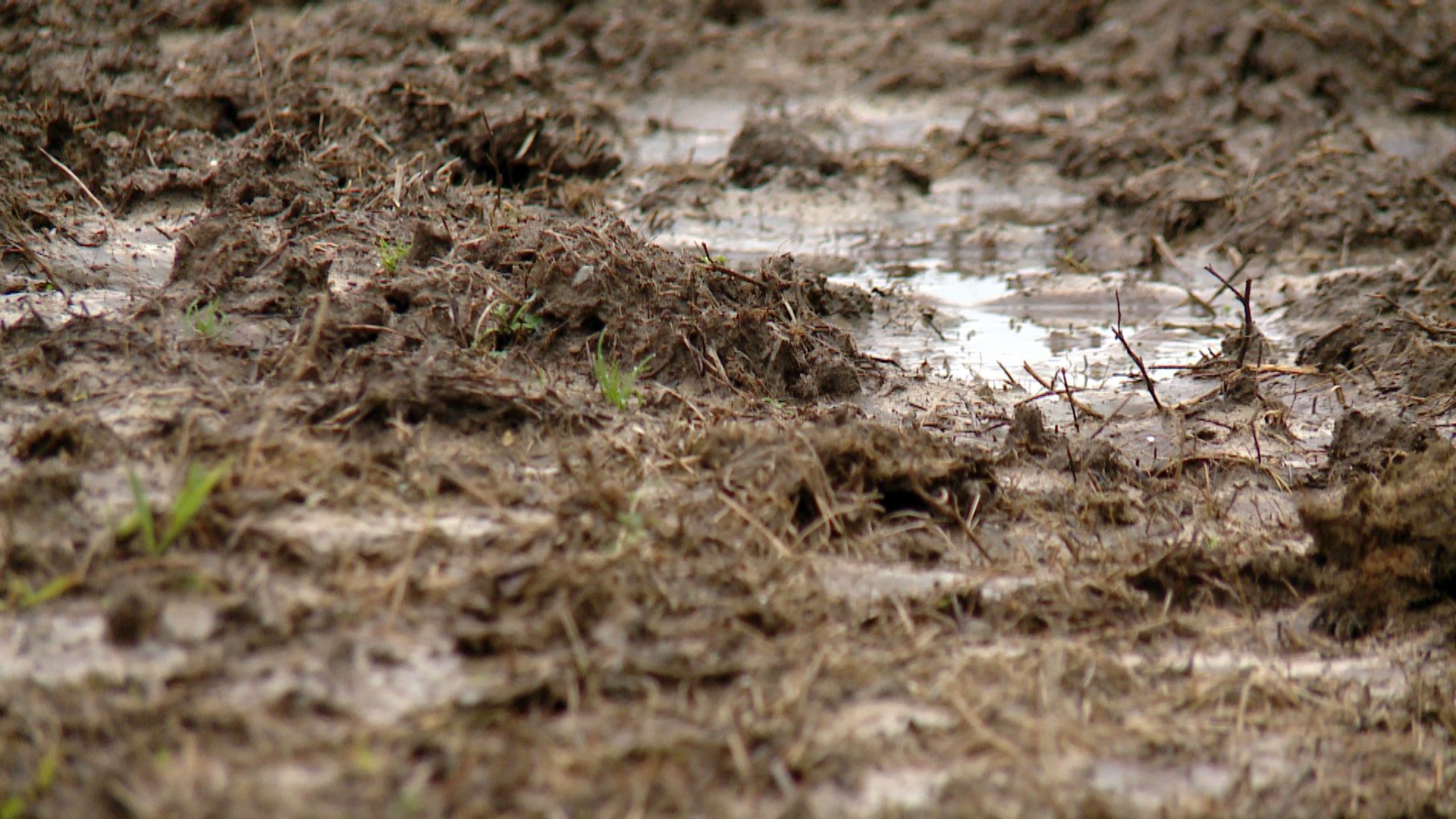LOUDON COUNTY, Tenn. — Day after day of rain is making a muddy mess on farms throughout East Tennessee. The bogged-down fields have filled a normally slow time of year with hard labor.
"It absolutely is the wettest season we've had to deal with," said David Watson, who has operated a beef cattle farm in Loudon County since 1998. "It is at least two or three times wetter than it normally is this time of year."
Wherever the cattle walk, the fields are torn to pieces. Watson has had to repeatedly move his high-traffic hay feeder.


"It just got so muddy, we had to move it to another location. And now, it's just as muddy," said Watson. "Go through here with a tractor it is just a slop-mess. It tears the ground up and it ruins your grass just to drive through there with a tractor."
The saturated soil creates issues beyond making the job messy. In addition to contributing to erosion of the land, it can cause health concerns for livestock.
"All that moisture and mud can damage hooves. The cows can get what is basically the same thing soldiers in World War One called trench foot from standing and living in muddy trenches. When that happens, we have to call in the vet called for our cattle, have them clean the foot, and give them some antibiotics," said Watson.


"All the moisture can harbor diseases this time of year. It is also making sure larvae in the ground do not dry out. The wetter it is now and into March and April, the more insects that can also contribute to disease and infection," said Neal Denton with UT extension.
The other issue is this is usually the time of year when cattle begin giving birth to calves.
"We already have one calf on the ground. We hope the weather doesn't impact the rest of the births because mama get them up and dried off in order for them to live," said Watson.


Denton said if the wet weather continues, it could impact the schedule for this year's growing season.
"Fields are so wet, if this continues into March we could see some delay in planting for row-crop farmers and for vegetable growers," said Denton.

